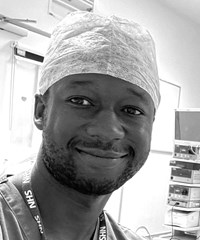ENT features archive for 2014
Doctors’ health and wellbeing: depression in surgeons
Dr Clare Gerada and Richard Jones work for the Practitioner Health Programme (PHP), a specialist service for doctors and dentists in the London area with mental health / addiction problems (www.php.nhs.uk). Here they discuss some of their preliminary findings (specific...
The workplace environment and doctors’ health (ENT)
It is well established that doctors have higher levels of stress, depression and suicide than the general population [1] and most other professional groups (Figure 1 illustrates the factors that can make us ill). In addition they have high levels...
Is one glass of wine on call safe?
It’s a standard question for those about to sit a Specialist Training (ST) interview; you are on call and you call a senior colleague in to perform an operation. You smell alcohol on the breath of the surgeon, so what...
The role of training programmes in protecting patients
ENT trainees are fully registered doctors who have responsibilities to comply with the requirements of Good Medical Practice. This includes ensuring that they put the interests of their patients at the heart of their practice. This duty is complementary to...
Simulation: human factors scenario training
It is said that surgical training has suffered as a result of a combination of factors – through the introduction of work time restrictions such as the European Working Time Directive (EWTD) [1], a limit on the number of years...
Communicating with patients in ‘Plain English’
Physicians have long been accused of using unnecessarily complicated language and impenetrable jargon as a way of maintaining their status, prestige and high earnings-potential, bamboozling the public and excluding them from meaningful discussion as part of what George Bernard Shaw...












